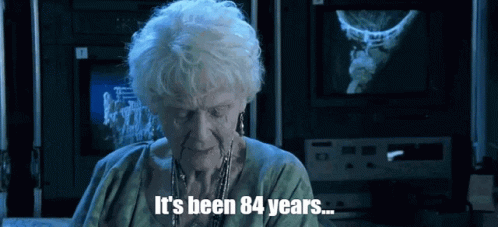I accidentally wrote a dead book. What do I do now?
I finally finished my book and all I got was this uncomfortable truth.

I'm going to start by doing something absolutely insufferable, which is to start off a blog by quoting myself. (It's short. There's a point.)
Ready? Deep breath! Here you go:
A realization that hit me hard early in my graduate degree was that craft was not vision, and, while even a tiny amount of vision could make up for a multitude of technical sins, no amount of technical prowess could make up for a lack of vision.
If a piece of work was fundamentally lifeless, it could and would not be revived—not by might or willpower or impeccable sentence-wrangling. The work had energy to channel, or it did not, and it was prudent to figure out which statement applied to the situation at hand and cut my losses immediately if the outlook looked bleak.
That paragraph is quoted verbatim from my MFA thesis, where it languished in the middle of a section about creativity and the philosophy of AI.
In the section, I wondered where writerly “vision” came from and whether such vision could be replicated by a machine. Interesting stuff! Certainly zeitgeisty enough for any self-respecting thesis.
But now all that high-falutin' talk of craft vs. vision has come back to haunt me, because I've finished my book and large swaths of it are, yes, fundamentally lifeless—they feel patched in, or too heady, or simply aren't breathing in the way every bit of a book needs to breathe.
This book has no energy! It's kaput! It is an ex-parrot! (Confused? See [a] below.)
What's worse: The book has taken a long time and many drafts to complete. So much for “cutting my losses immediately.”

You shouldn’t feel sorry for me, though. This realization, while discouraging, has put me firmly on the path to figure out exactly what it is that makes a work lifeless or energetic.
One promising hypothesis has come from Nuar Alsadir’s book, Animal Joy, in which she discusses the mechanics of communication—namely, the unique vitality that only emerges when one speaks authentically, which is to say—from one’s own body.
Drawing on her experience as a psychotherapist, Alsadir talks of Wilfred Bion’s theory about elements of thinking:
Alpha elements are the brain-to-brain elements, ego-ridden, thoughts which are digested and can be articulated in concrete forms.
Beta elements are the raw experiences—the sub-language textures that can be communicated body to body without the higher linguistic brain being any the wiser. Alpha elements can be deceitful; beta elements never can be.
It occurs to me that the kind of writing I instinctively recoil from — from others or myself — is the alpha-lead stuff, in which it’s clear that the writing is ultimately an elaborate performance—a theatrical mask. Brightly painted, yes, and very possibly beautiful, but an obfuscation.
My hypothesis here: The lifeless sections of my book are the ones that my body and instinct had nothing to do with. They're the bits of my book that came from my ego, the part of my brain that wants to make itself feel better by being A Really Excellent Writer.
The lifeless sections of my book are the ones that my body and instinct had nothing to do with. They're the bits of my book that came from my ego, the part of my brain that wants to make itself feel better by being A Really Excellent Writer.
There's no easy craft fix here. There's no way to replicate beta-lead work through technical means. Amateur writers try to induce a similar effect via explicit body words (all those elbows and bones!), but this shortcut works only sometimes and only on a surface level.
If the work itself is lifeless, such sensory writing isn't so much evocation as affectation. The brain, speaking of and as the body, is wholly unconvincing, rife with ulterior motive.
In short: The long way ‘round is also the only way ‘round and that is: To get work that speaks, body to body, you have to tell the truth from the body. Feel your way forward a little. Be willing to slow down, stop for a while, wait until the body knows what it wants to say.
In my situation, there’s no rectifying the bad bits through revision (that part, at least, I got right in my thesis!). Poking at dead things won't make them any less dead. The only way forward is to throw out any corpses and go back on the hunt for what lives.
Postscripts and references.
[a] If you didn't catch that reference, that means you're lucky enough to be seeing this for the first time. (I envy you! Sincerely!)
[b] Mats Eilertsen, who I listened to on repeat while writing the above.
(2/2024)